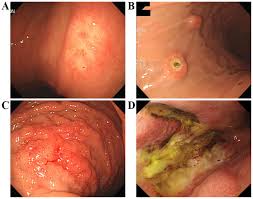Metastatic gastric cancer is an advanced stage of stomach cancer in which the disease has spread beyond the stomach to distant organs such as the liver, lungs, peritoneum, or lymph nodes. It is a serious condition with a generally poor prognosis, making early detection and aggressive treatment essential for improving survival rates.

Causes and Risk Factors
The exact cause of gastric cancer is not always clear, but several risk factors contribute to its development and progression:
- Helicobacter pylori (H. pylori) Infection: Chronic infection increases inflammation and risk of malignancy.
- Dietary Factors: High salt intake, processed foods, and smoked meats contribute to risk.
- Genetic Predisposition: Family history of stomach cancer increases susceptibility.
- Smoking and Alcohol Consumption: Both are significant risk factors for gastric cancer progression.
- Previous Stomach Surgery: Procedures such as partial gastrectomy may increase long-term cancer risk.
- Obesity and Chronic Gastritis: Persistent inflammation can lead to cancerous changes in the gastric lining.
Symptoms of Metastatic Gastric Cancer
Symptoms of advanced gastric cancer vary depending on the organs affected but commonly include:
- Unintentional Weight Loss
- Persistent Abdominal Pain
- Nausea and Vomiting (sometimes with blood)
- Difficulty Swallowing (Dysphagia)
- Loss of Appetite
- Fatigue and Weakness
- Ascites (Fluid Buildup in the Abdomen)
- Jaundice (If Liver Is Involved)
Diagnosis
Diagnosing metastatic gastric cancer requires multiple tests and imaging studies:
- Endoscopy with Biopsy: Identifies cancerous cells in stomach tissue.
- CT Scan/MRI: Detects tumor spread to distant organs.
- PET Scan: Helps determine the extent of metastasis.
- Blood Tests (CEA and CA 19-9 Markers): Monitor cancer progression.
- Laparoscopy: Evaluates peritoneal involvement before surgery.
Treatment Options
While metastatic gastric cancer is rarely curable, treatment focuses on prolonging survival and improving quality of life. Treatment options include:
1. Chemotherapy
Systemic chemotherapy is the primary treatment for advanced gastric cancer. Commonly used drugs include:
- Fluorouracil (5-FU)
- Capecitabine
- Oxaliplatin
- Cisplatin
2. Targeted Therapy
Targeted treatments help attack specific cancer mutations:
- HER2-Positive Cancer: Trastuzumab (Herceptin)
- VEGF-Targeted Therapy: Ramucirumab
3. Immunotherapy
Checkpoint inhibitors like Pembrolizumab and Nivolumab boost the immune system’s ability to fight cancer cells.
4. Radiation Therapy
Used in select cases to control symptoms and reduce tumor size.
5. Palliative Care and Supportive Therapies
Pain management, nutritional support, and symptom relief improve the patient’s well-being.
Prognosis and Survival Rates
The prognosis for metastatic gastric cancer is poor, with a 5-year survival rate of around 5-10%. However, advancements in treatment, including immunotherapy and precision medicine, are improving outcomes.
Latest Research and Clinical Trials
Ongoing clinical trials are exploring:
- New targeted drugs
- Combination immunotherapies
- Personalized medicine approaches
Metastatic gastric cancer is a life-threatening condition that requires a multidisciplinary treatment approach. Early detection and advancements in therapy are crucial for improving patient survival and quality of life.

